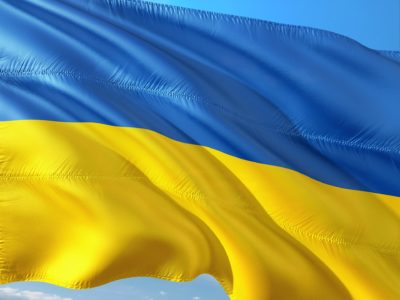EU-Ukraine relations: a window of opportunity
Unlike for the cast of HBO’s Chernobyl, there is hope for EU and Ukrainian policymakers yet.
Source: Pixabay
HBO’s bleak, bureaucratic miniseries Chernobyl has put Ukraine at the top of the cultural agenda. As Ukraine and the EU move into a new stage of their relationship, policymakers on both sides may well empathise with the series’ characters who cooperate to overcome inertia.
Indeed, EU-Ukrainian cooperation has been marked by division in recent times. In the economic sphere, European farmers have turned their ire on a Ukrainian chicken breast exporter exploiting a loophole in the EU-Ukraine trade deal. Out of the EU’s desire to preserve a key tool of Ukraine’s European alignment, the resulting agreement largely benefited Ukraine. Members of the European Parliament may provide serious resistance in passing the deal.
Recent elections both in Ukraine and in the EU have given both sides an impetus to reboot their efforts. Although concerns have been raised about newly elected President Zelensky’s populism, it is not the same kind of populism we see in the European Union. Zelensky, for one, is not a pro-Kremlin figure. Putin’s understanding of that fact underlined his offer of Russian passports to Ukrainian citizens in the Donbas region. A pro-EU and pro-NATO Russophone politician undermines Russia’s narrative that Ukrainian Russophones are loyal to Russia.
Zelensky’s political party is ahead in the polls by a substantial margin, before the Parliamentary election in Ukraine scheduled for 21 July. He can expect to have a strong parliamentary majority for reform ahead of the new European Commission coming into office. On the EU’s part, the feared populist revolution failed to materialise. Russia would have enjoyed the emergence of a populist bloc in the European Parliament, large enough to hamstring the EU’s action. In its absence, Ukraine and the EU are free to continue deepening their relationship.
This will not be an easy journey. The EU last assessed the implementation of the Association Agreement in November 2018. It noted that progress was being made, particularly in public services – pensions, healthcare and education. Energy is a key area of focus for both sides. Indeed, the Ukrainian Parliament recently ratified amendments to the Association Agreement, laying the groundwork for Ukraine’s integration into the European energy market. The spectre of Nord Stream 2 hangs over these discussions. It has been referred to as ‘Ukraine’s worst nightmare’, and sends conflicting messages about European commitment to energy security and Ukrainian economic development.
In addition, reform itself is a difficult path to tread. Challenges persist in anti-corruption measures, economic stabilisation, and the continued conflict and destabilisation efforts by Russia.
The Ukrainian public (excluding the Crimea, Donetsk and Luhansk oblasts), according to February 2019 polling from the Razumkov Centre, has a negative attitude to the ongoing series of reforms: land, healthcare, pensions, education, judicial reforms, as well as the mass privatisation of state-owned enterprises. The poll also highlighted brain drain from Ukraine as a threat, calling for discussions on partial reimbursement for education spending on emigrants.
However, unlike for Chernobyl‘s cast, there is hope for EU and Ukrainian policymakers yet. Global Skills Partnerships are gaining traction in European policy circles to share the benefits of migration between destination and origin countries. For example: two Ukrainians would train at home. One would choose to stay and the other to migrate to the EU. An EU organisation in need of their skills would pay for the migrating student’s training in full, and also pay for half of the remaining student’s. The migrant worker would then commit to work for that organisation for a period of time and pay off the training costs with a fraction of their salary. Both countries gain highly-skilled employees, while their governments do not bear any of the cost – helping to tackle the ‘brain drain’ problem.
Although Ukrainians may have a negative perception of Association Agreement reforms, they remain positive about the European path as a whole. Data from the International Republican Institute, Sociological Group Rating and GfK demonstrate this. When Ukrainians[1] were asked to choose between joining the EU or a Customs Union with Russia, Belarus and Kazakhstan, support for the EU fluctuated between 30 and 40% from November 2011 to February 2014. In March 2014, support for joining the EU shot up to 52% and has had majority backing ever since. Support for the Customs Union has become a minority opinion. The presidential elections have not changed this – support for joining the EU was 57% in May 2019. NATO accession has also gained some popularity after Russian military action on Ukrainian territory began. In May 2019, 49% of Ukrainians stated they would support joining NATO in a referendum.
Support for joining the EU finds majority backing among supporters of all Ukrainian political parties with the potential to win parliamentary seats, bar the pro-Russia Opposition Platform. The picture is similar for NATO. It wins majority support across most party supporters, a plurality among Zelensky’s party supporters, and strong opposition from the Opposition Platform. Although it will not be a straightforward journey, it is one that voters in Ukraine across the political spectrum remain committed to.
Overall, the convergence of Ukrainian and EU electoral cycles provides a window of opportunity for both sides to recommit to their cooperation. On the Ukrainian side, the government must use this impetus to continue with structural reform and anti-corruption measures while working with the EU to alleviate citizen concerns. The EU should remain a strong backer of Ukraine’s European pathway and resist the temptation of rapprochement with Russia.
[1] Figures from after April 2014 exclude Crimea. Figures from after September 2014 exclude occupied Donbas.

